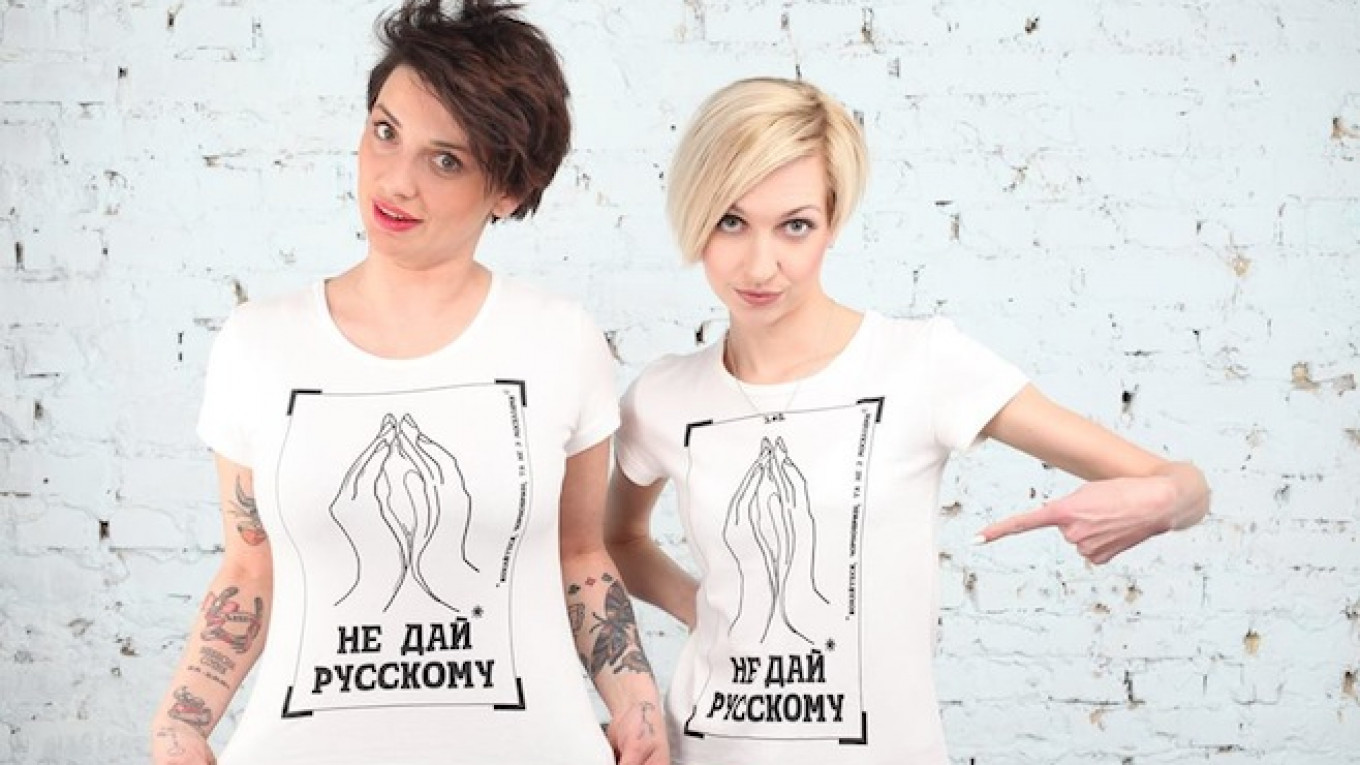A group of Ukrainian women have given recent sanctions against Russia a new twist, selling T-shirts with the slogan: "Don't give it to a Russian," in a call for refusing sex to Russian men.
The campaign, organized by Ukrainian television and business news journalists, takes its cue from other sex strikes throughout history, and has inspired a range of interpretations - not all sexual - since it launched last week.
"Each of our activists, who agreed to have their pictures taken in the patriotic T-shirt, had her own meaning in mind: Don't give Crimea to a Russian, don't give your land to a Russian occupation, don't give money to a Russian, or don't let Russians win," a statement on the campaign's Facebook page said.
"Sex, funny as this may sound, was the last thing to occur," the organizers said. "What will you have in mind when you wear this T-shirt?"
The black-and-white T-shirt features an image of folded hand palms - as if in prayer or, according to some interpretations, as a symbolic representation of a vagina - and a line from a 1838 poem entitled "Kateryna" by Ukrainian national poet Taras Shevchenko: "Fall in love, dark-browed maiden, but not with the Moskals [Russians]."
The organizers hope the call for celibacy in the name of peace will not inspire Ukrainian women alone.
"Russian women, would you like to join us? Our [men] are still at home, but yours are already at war," they said.
Urging followers to "fight the enemy in any way," the Facebook page cited various sex strike campaigns from past eras, including one featured in the Greek playwright Aristophanes' anti-war comedy "Lysistrata." The women in the play refused sex to their husbands to dissuade them from fighting in the Peloponnesian War and to secure peace.
In more recent and real-life examples, women in Liberia staged a sex strike in 2003 and succeeded in establishing peace in the country after a 14-year civil war.
In 2006 in Colombia, the wives and girlfriends of gang members started an action called "the strike of crossed legs" to stop gang violence that had killed more than 450 people in the region.
Similar strikes also took place in Italy, the Philippines, Togo and Kenya.
Since Russia moved in to annex Crimea early this month, other calls for boycotts have appeared in Ukraine.
A Twitter user posted a photograph of a billboard on a highway between Kiev and Odessa, saying: "Don't buy from the occupant! Boycott Russian goods."
The sex-strike campaign went viral on Russian social networks in a matter of days, with some commentators expressing support for the women, but most denouncing them.
Nationalist online magazine "Sputnik and Pogrom" on its Facebook page called the women prostitutes, in an accusation that seemed reminiscent of an old Russian joke about two men discussing a woman who had refused sex to , and then end up calling her a prostitute for turning them down.
The T-shirts sell for 250 hryvnia ($23), with the proceeds reportedly going toward supporting the Ukrainian army. The Ukrainian Defense Ministry recently set up a hotline asking for 5-hryvnia donations, and nearly 10 million hryvnia had been raised by mid-March, according to the ministry website.






